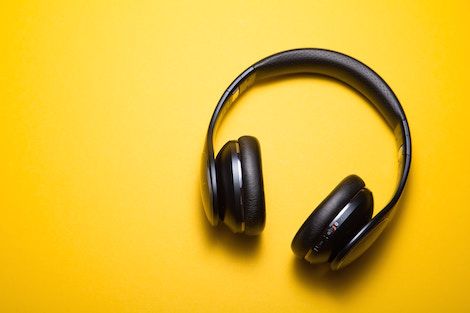
3 Reasons Teachers Love Audiobooks
Before we go any further, I just want to make it clear that audiobooks are books, and listening to them definitely counts as reading. Got it? Good. We’re on the same page.
As many a classroom teacher can attest, especially those who teach literacy skills, books can be very intimidating to a student. This is true of both the first graders who are just learning to decode words and the high school students who are learning the skills necessary to analyze literature. Being read to is much less intimidating. There’s a reason that children love story time. It makes them comfortable, and it allows them to lose themselves in the story. And the effect can be replicated with students of all ages by utilizing audiobooks in the classroom.
I say that teachers already love audiobooks, and that is certainly true of those who have seen them at work with their own students. Others may not have thought to use them in the classroom or may have their own bias against them because they have never gotten comfortable with them as readers. If that’s the case, then look at this as a list of reasons why you should love audiobooks, gathered from some teachers who already do.
Audiobooks help to minimize, or even remove, barriers to reading that are faced by many students, including English Language Learners and students with decoding difficulties.
English langauge learners (ELLs) do not learn to read, write, speak, and listen to their new language at the same rate. They may make tremendous gains in one of these areas and still feel a real struggle in others, and because they are so good in one, teachers can be tricked into thinking they are going to be good in them all. As a result, these students don’t always receive the support they need. Unfortunately, this is often true for students with decoding difficulties, too.
Audiobooks can be a good way to provide students with a means to practice both their listening and reading skills. The key (and this is true anytime audiobooks are used in the classroom) is to make sure they are reading along with the narrator.
When used with headphones, audiobooks allow students to shut out distractions and focus on the task at hand.
The greatest challenge to reading, whether in the classroom or at home, is dealing with the distractions that come from other students, siblings, or other people in general. Headphones (especially the fancy ones that so many high school kids seems to have today) are a great way of eliminating that distraction. This means reading will get done faster and at a higher level of comprehension.
“But my school doesn’t allow headphones or phones.” This is definitely true for a lot of schools because they serve as a source of distraction. But they can be used for good, too. Besides, they don’t necessarily have to do their listening in class. Teach them how to access the books on their devices, then encourage them to listen on the bus or at home. I have personally used this strategy and had great success. Students come back to class ready to talk, and they noticed things that other students didn’t. It went a long way to building their confidence, and it even encouraged other kids to give audiobooks a try.
Audiobooks can be a major time saver for teachers.
Teachers never have enough hours in the day. One of the first casualties of a busy teacher life is reading for enjoyment. It doesn’t have to be that way. Utilizing the time spent commuting or waiting to pick up kids from afterschool activities or trying to squeeze in a workout to listen to audiobooks is a great way to make sure that reading doesn’t get sacrificed. Audiobooks can also be a good way of getting some work done while doing any number of other things, whether it’s pre-reading a text for class or doing some independent professional development.
I’m sure there are lots of other ways that audiobooks benefit teachers. What are some of the ways they have proven useful to you?
















